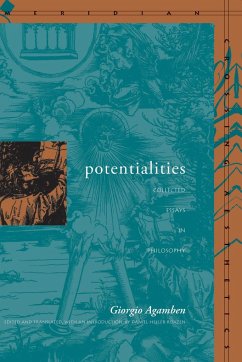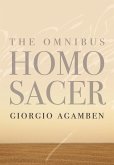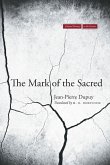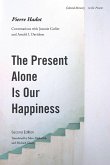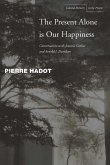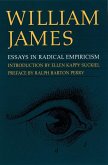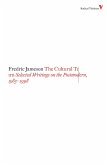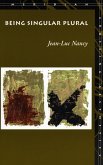This volume constitutes the largest collection of writings by the Italian philosopher Giorgio Agamben hitherto published in any language. With one exception, the fifteen essays, which reflect the wide range of the author's interests, appear in English for the first time.
The essays consider figures in the history of philosophy (such as Plato, Plotinus, Spinoza, and Hegel) and twentieth-century thought (most notably Walter Benjamin, but also Heidegger, Derrida, Deleuze, the historian Aby Warburg, and the linguist J.-C. Milner). They also examine several general topics that have always been of central concern to Agamben: the relation of linguistic and metaphysical categories; messianism in Islamic, Jewish, and Christian theology; and the state and future of contemporary politics. Despite the diversity of the texts collected here, they show a consistent concern for a set of overriding philosophical themes concerning language, history, and potentiality.
In the first part of the book, Agamben brings philosophical texts of Plato and Benjamin, the literary criticism of Max Kommerell, and the linguistic studies of J.-C. Milner to bear upon a question that exposes each discipline to a limit at which the possibility of language itself is at stake. The essays in the second part concern a body of texts that deal with the structure of history and historical reflection, including the idea of the end of history in Jewish and Christian messianism, as well as in Hegel, Benjamin, and Aby Warburg. In the third part, the issues confronted in the first and second parts are shown to be best grasped as issues of potentiality. Agamben argues that language and history are structures of potentiality and canbe most fully understood on the basis of the Aristotelian theory of dynamis and its medieval elaborations. The fourth part is an extensive essay on Herman Melville's short story "Bartleby, the Scrivener."
The essays consider figures in the history of philosophy (such as Plato, Plotinus, Spinoza, and Hegel) and twentieth-century thought (most notably Walter Benjamin, but also Heidegger, Derrida, Deleuze, the historian Aby Warburg, and the linguist J.-C. Milner). They also examine several general topics that have always been of central concern to Agamben: the relation of linguistic and metaphysical categories; messianism in Islamic, Jewish, and Christian theology; and the state and future of contemporary politics. Despite the diversity of the texts collected here, they show a consistent concern for a set of overriding philosophical themes concerning language, history, and potentiality.
In the first part of the book, Agamben brings philosophical texts of Plato and Benjamin, the literary criticism of Max Kommerell, and the linguistic studies of J.-C. Milner to bear upon a question that exposes each discipline to a limit at which the possibility of language itself is at stake. The essays in the second part concern a body of texts that deal with the structure of history and historical reflection, including the idea of the end of history in Jewish and Christian messianism, as well as in Hegel, Benjamin, and Aby Warburg. In the third part, the issues confronted in the first and second parts are shown to be best grasped as issues of potentiality. Agamben argues that language and history are structures of potentiality and canbe most fully understood on the basis of the Aristotelian theory of dynamis and its medieval elaborations. The fourth part is an extensive essay on Herman Melville's short story "Bartleby, the Scrivener."

